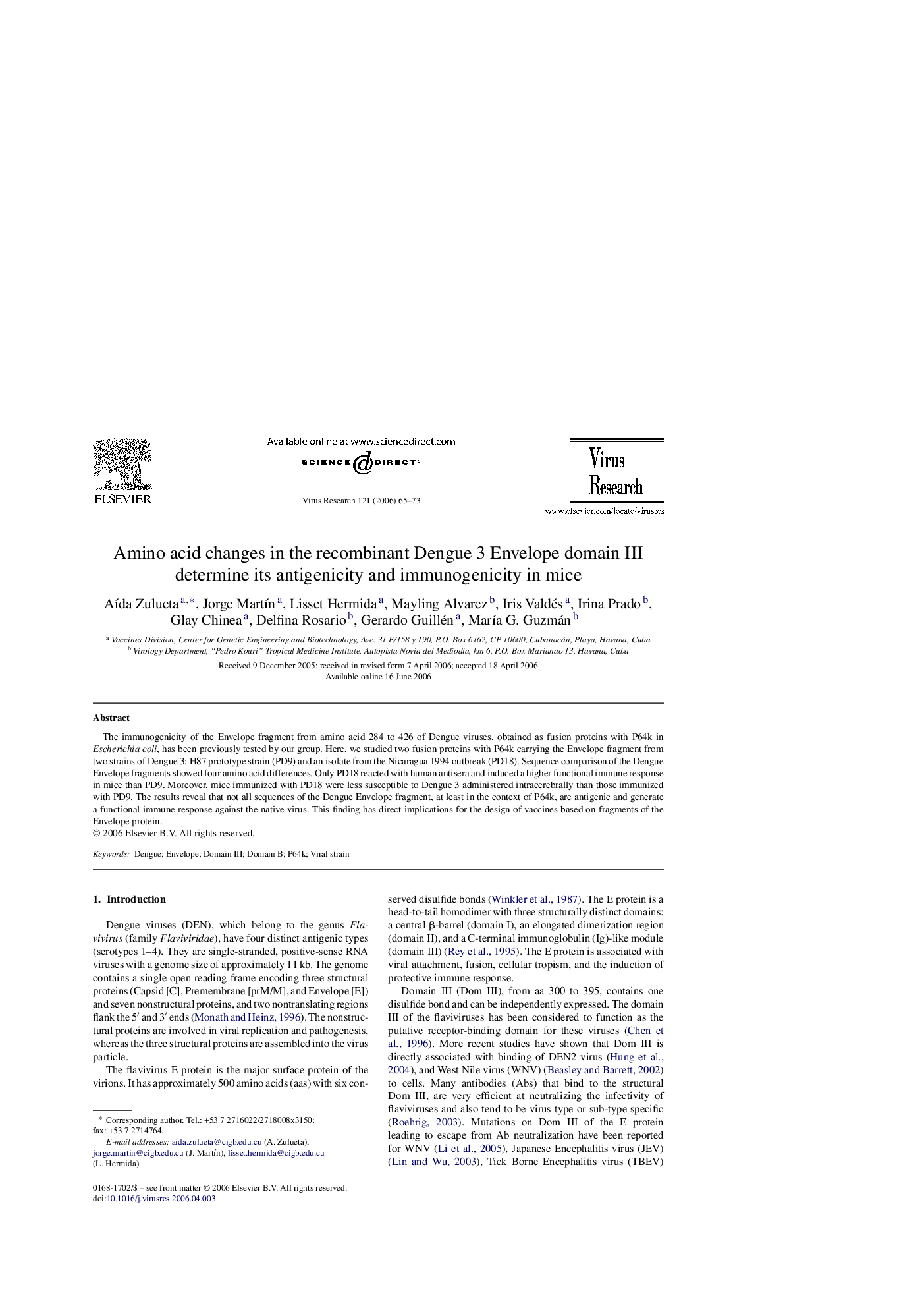| Article ID | Journal | Published Year | Pages | File Type |
|---|---|---|---|---|
| 3431128 | Virus Research | 2006 | 9 Pages |
The immunogenicity of the Envelope fragment from amino acid 284 to 426 of Dengue viruses, obtained as fusion proteins with P64k in Escherichia coli, has been previously tested by our group. Here, we studied two fusion proteins with P64k carrying the Envelope fragment from two strains of Dengue 3: H87 prototype strain (PD9) and an isolate from the Nicaragua 1994 outbreak (PD18). Sequence comparison of the Dengue Envelope fragments showed four amino acid differences. Only PD18 reacted with human antisera and induced a higher functional immune response in mice than PD9. Moreover, mice immunized with PD18 were less susceptible to Dengue 3 administered intracerebrally than those immunized with PD9. The results reveal that not all sequences of the Dengue Envelope fragment, at least in the context of P64k, are antigenic and generate a functional immune response against the native virus. This finding has direct implications for the design of vaccines based on fragments of the Envelope protein.
